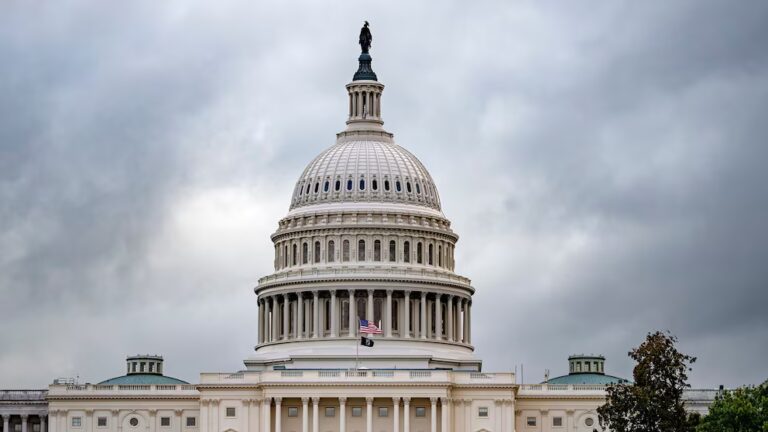
The question that mattered most at the Democrats’ first presidential primary debate was the question that none of the assembled candidates had a good answer for: What will you do about Mitch McConnell?
The Democrats onstage in Miami Wednesday night had plans for everything. It was a festival of policy proposals on immigration and gun control, health care and climate change. But even if one of those candidates wins in 2020, if McConnell remains Senate majority leader, their agenda is as good as dead.
No one wants to admit that, of course. “Short of a Democratic majority, you better understand the fight still goes on,” said Sen. Elizabeth Warren. “It starts in the White House and it means that everyone we energize in 2020 stays on the front lines come January 2021.”
“As my colleagues know, I fought from the day I got to the Senate and built coalitions and passed the First Step Act,” said Sen. Cory Booker. “Not as far as I want to go, but thousands of people will be liberated.”
These are wan answers to a very plausible scenario. The likeliest 2020 outcome is that Democrats win the White House and Republicans hold the Senate. To take back the gavel, Democrats would need to defend a tough seat in Alabama and win three seats above that. Their best chances are races in Arizona, Colorado, and perhaps Maine. Beyond that, Iowa and North Carolina are possible, but unlikely, targets. It’s not an impossible path back to the majority, but it’s not an easy one either.
Making matters worse for Democrats, this may be their last chance to retake the Senate for the foreseeable future. The 2022 election is a tougher map for them, and it’ll be a midterm year. If they win the White House in 2020, they’re likely to lose Senate seats in 2022 — and that’s even truer if their agenda has been stymied by a Republican Senate and the country deems their presidency a failure. It’s 2020 or bust.
In a more sensible system, the presidential candidates would be quizzed on how they would lead their party to down-ballot victory if nominated. They’d release detailed plans for organizing in purple states and crafting a message designed to carry coattails. They’d be discussing statehood for Puerto Rico and DC — which is both the right thing to do on the merits and would strengthen Democrats’ Senate competitiveness in the future. It’d be all hands on deck to take back the Senate.
The reality is closer to the opposite. Part of Democrats’ Senate problem was evident onstage. Democrats would have a better chance in Texas if Beto O’Rourke or Julián Castro had chosen to take on John Cornyn. Thursday’s presidential debate will feature John Hickenlooper, the strongest candidate Democrats could have fielded in Colorado. Steve Bullock, the only Democrat with a shot in Montana, didn’t qualify for the debates, but he’s still running for president rather than Senate. Stacey Abrams passed on the race in Georgia. Some of these candidates could drop out and file for Senate, but running back to your state after flaming out nationally isn’t the strongest way to start a tough campaign.
At the same time, the presidential campaign is pushing Democrats far to the left on everything from health care to immigration to abortion to climate change. The pressure in the Democratic Party to decriminalize border crossing isn’t going to make it easier to win Senate seats in Texas or Arizona; the effort to enshrine Roe v. Wade into law won’t make Doug Jones’s life simpler in Alabama. My point here isn’t that Democrats are wrong for taking stronger stands on these issues, but the Senate map forces them to win in center-right (and even far-right) states, and that gets harder as the national party pulls left on divisive issues.
Perhaps that’s an outdated view of the electorate. But it’d be interesting to hear the point argued. Only a few of the candidates Wednesday even gestured to their theory for winning a Senate majority.
“Whoever is our nominee needs to campaign in places like South Carolina,” said Booker, who also suggested Iowa was winnable for Democrats. “This is about getting us back to having 50 votes in the Senate and more. so we cannot not only balance the Supreme Court, but start to pass an aggressive agenda.”
Rep. Tim Ryan, meanwhile, argued that “if you want to beat Mitch McConnell, this better be a working-class party. The Democratic Party, he said, has “a perception problem. … We are not connecting to the working-class people in the very states that I represent in the industrial Midwest. We lost all connection. We have got to change the center of gravity from being coastal and elitist and Ivy League.”
The right strategy here is debatable. But it should be debated. It’s the most important question any Democrat running for president can answer.
Sourse: vox.com






